Homeownership. An expensive endeavor. But at least you’re not throwing away all that money on rent, right?
Actually, renting makes a lot more financial sense in many cases. But renting doesn’t only have financial benefits. There are a host of other benefits as well.
Keeping Up with the Joneses Isn’t As Much of an Issue
“The neighbors are building a screened-in porch.”
“They’re painting the house down the street.”
“The Myers have immaculate landscaping.”
When you rent, you tend to worry less and compare your house less. It’s a strange fact of life. When you don’t own your home, you don’t attach as much of your identity to it.
Also, since you’re generally not in charge of maintenance and upkeep, you can blame the state of your house on your landlord.
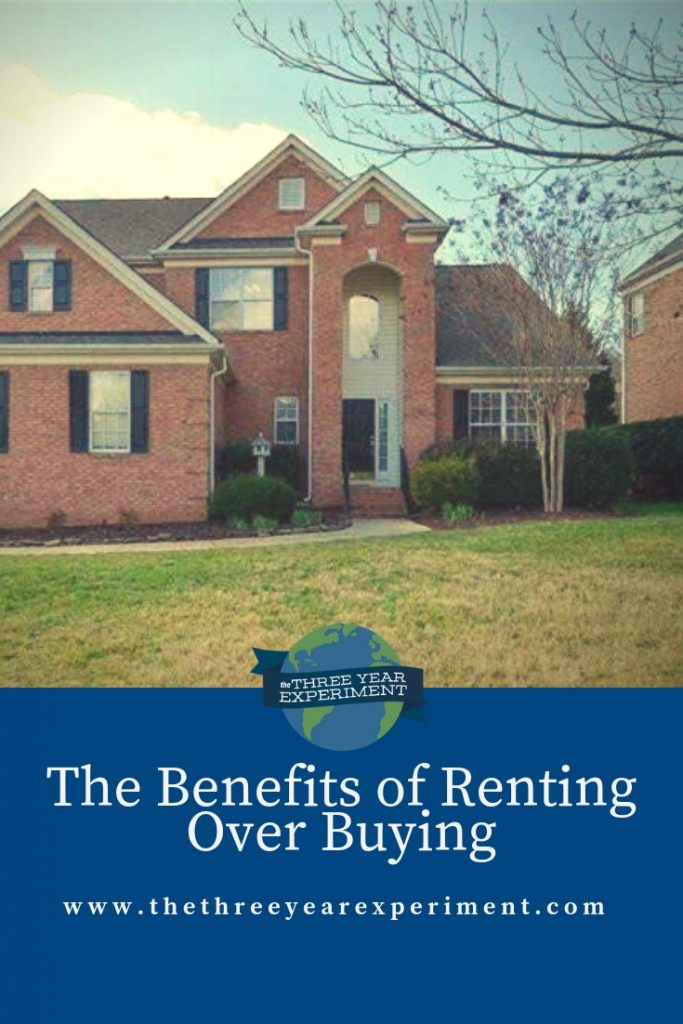
When you rent, you tend to spend less time looking around your house with a critical eye, thinking about what needs to be updated.
When we rented a house for the first two years we lived in New Hampshire, I spent almost no time thinking about how to improve my decor or improve the selling value of our house. I just lived in it, and it was a huge mental weight lifted from me not to constantly be thinking about home improvements.
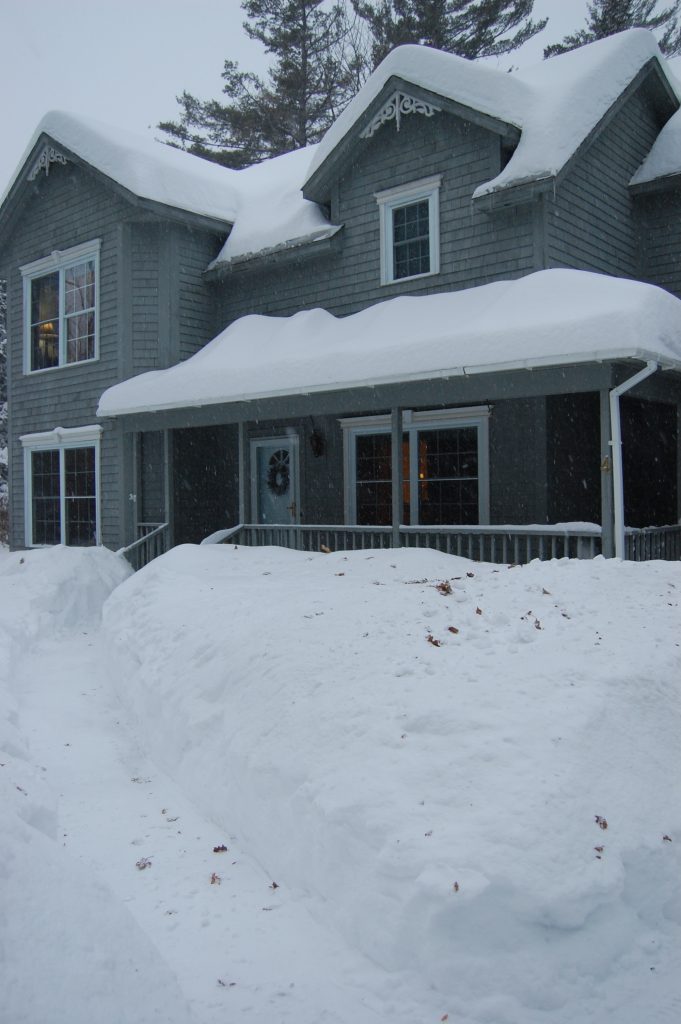
You Know Exactly What You’re Spending Each Month
When you buy a house, you sign up for a fixed mortgage in most cases. The cost won’t change for the life of your loan. Or will it?
Buying a house comes with the added costs of property taxes, homeowner’s insurance, maintenance, and repairs.
You never know exactly how much these costs will be, so it’s hard to estimate the total cost of your house each month when you’re thinking of buying.
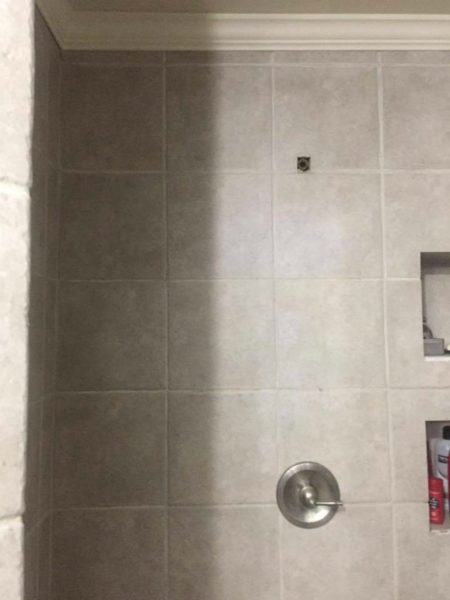
When you rent, however, you know exactly how much you’re paying in rent each month. There are no “surprise” extra costs thrown in. Yes, your rent may go up over the years, but you’ll likely be given ample notice.
Repairs Aren’t on You
Many experts recommend that you budget 1% of your home’s cost in potential repairs each year. While you may not pay $2,000 to $5,000 every year in repairs, chances are that every couple of years, you’ll have to shell out major bucks for a large home improvement project (like we did when we spent $14,000 on a new roof).
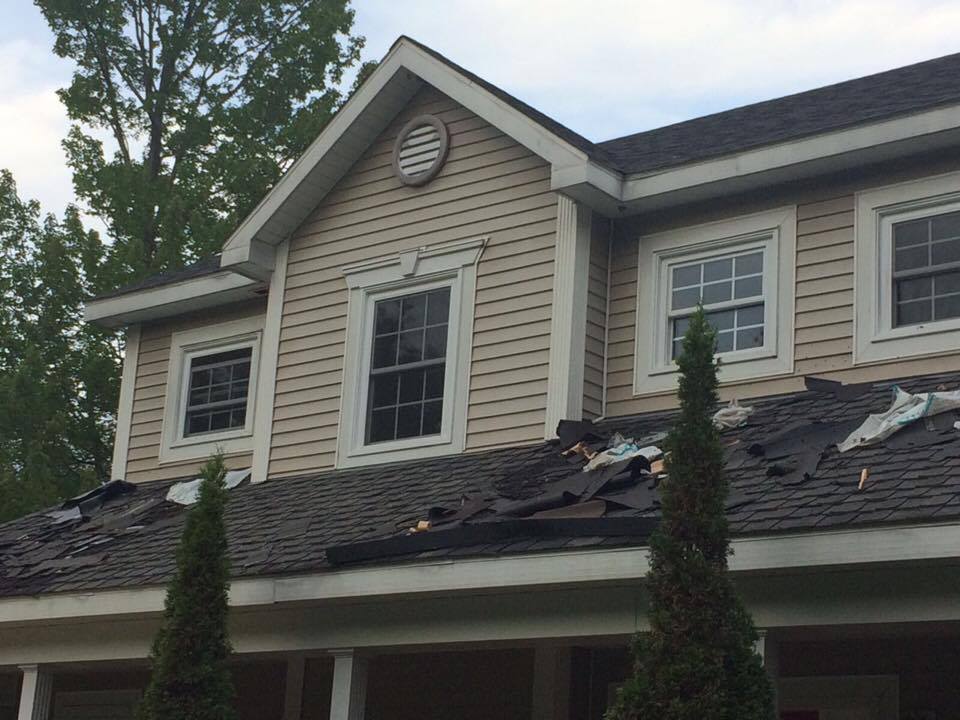
If you opt for a home warranty, be prepared to come out of pocket more than just the annual premium. In addition to the service fees that you have to pay each time a repairman comes to your home ($75-$125), you’ll also have to cover any parts and labor that the warranty doesn’t cover. And this can be a lot. Most warranties will cover a broken refrigerator motor, for example, but not the ice maker, the part most likely to break in the machine.
You Don’t Have to Pay Property Taxes
Property taxes, especially in certain areas of the country, can add an enormous cost to your house. When we lived in New Hampshire, we paid over $8,000 per year in property taxes, or 2.6% of the cost of our house, each year.
Even in lower property tax areas, like the Southeastern US, property taxes are several thousand dollars per year. For a house with a $2500 property tax bill, that’s almost $210 per month extra you’ll pay just in property taxes.
You Can Try Before You Buy
When you move to a different state, or a different country, one of the things that works against you is what behavioral economist Dan Ariely calls arbitrary coherence. This is the idea that once you’ve established in your mind about how much a house should cost in one market, you’re unlikely to change your pricing strategy for another market.
“People who move from Los Angeles to Pittsburgh, in other words, don’t generally downsize their spending much once they hit Pennsylvania: they spend an amount similar to what they used to spend in Los Angeles… the only way out of this box, in fact, is to rent a home in the new location for a year or so. That way, we adjust to the new environment–and after a while, we are able to make a purchase that aligns with the local market.”
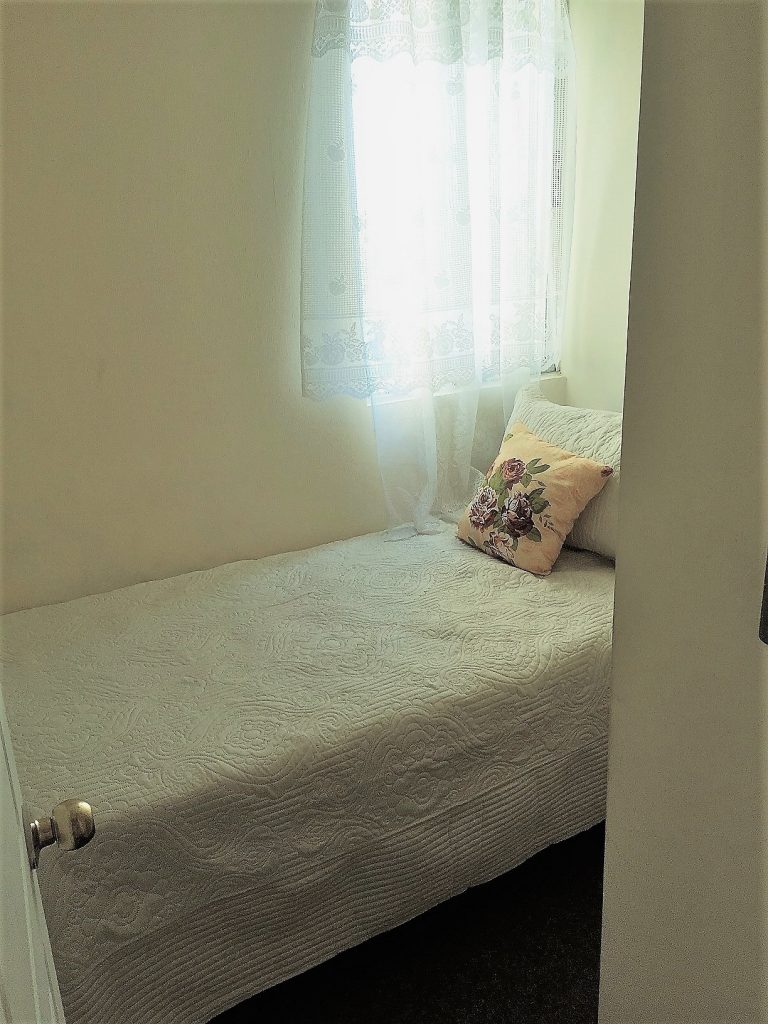
If you rent, however, not only can you reset the amount you think a house should cost to what it actually costs in your new state or country, you can try out neighborhoods, towns, or school districts.
Maybe you think that living downtown will eliminate the need for a car, and you rent a small apartment in the heart of the city for your family. But you may decide that type of living is ultimately unappealing because of the lack of green space or the school district.
Normally, you sign a one- or maybe two-year lease with a rental, so you have a few years to try out a new area and decide how it really feels to live there.
Leaving is Easy
When you do decide to leave your rental, for whatever reason, leaving is easy. Sure, you have to pack up your stuff and move, but that’s all you need to do. You don’t need to get the house ready to sell. You don’t need to do a bunch of repairs, find a real estate agent, and go through the endless closing process. If you’re offered a job in another town or another state, you can easily take it. If you decide you want to live one street over, you can find a house there.
There are many bloggers who feel strongly about the power of renting:
But Laurie, Don’t You Own a House?
Why yes. Yes I do. If it were just me, I would not own a house at this particular juncture. I would be renting a precious white colonial with a red door in downtown Davidson.
But, I am one half of a marriage and one fourth of a family, and the point was made to me, very strongly by my hubby, that he didn’t want to move again. Especially because he was working from home, and wanted to have his home office situation set up and nailed down. And the boys wanted to make friends in their neighborhood and develop them over time.
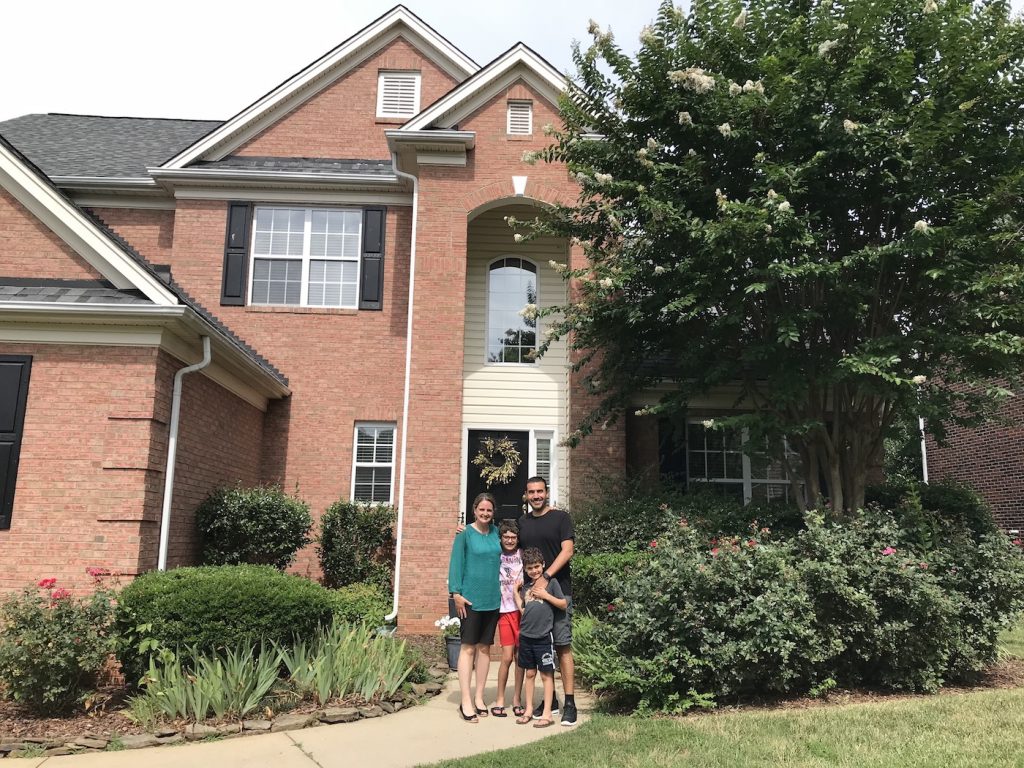
So, all these glorious reasons to rent were thrown out the window and we bought a house. And that, dear readers, is why personal finance is so rarely logical. You can have all the reasons in the world to do something, but for completely different reasons, make another choice.
Not that I think buying our house was a bad decision. We like it, we love our neighborhood, and we’re settling in well. But ah, the carefree days of renting… of not worrying about fixing up the house… about knowing exactly what our monthly outflow would be.
If you’ve got a decision to make, are undertaking a new move, or are not sure what the immediate future will bring, may I recommend renting for a few years?
What do you think? Would you rather rent or buy?

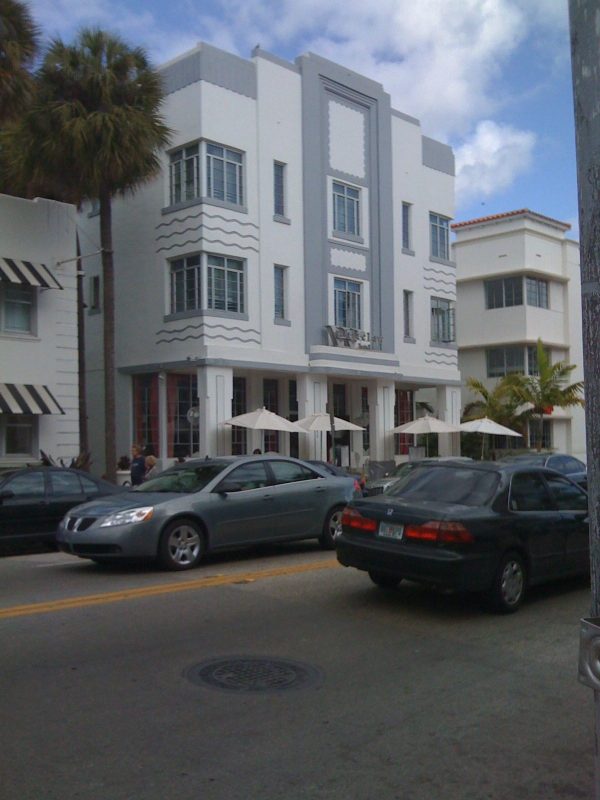

We own our home outright, but I would love to rent again as soon as the kids are grown
Me too! I’m really looking forward to renting again when we retire!
You lost me… why would you trade a paid-for situation for a rental? I’m seriously curious and asking since I’m at that situation myself.
My standard joke is that with real estate appreciation (correction anytime on the horizon anyone?) that I can’t afford to buy back in my neighborhood if I were to sell.
That’s a good question, Kevin. Maybe they want to take the equity and use it to practice geo-arbitrage? That’s kind of what we’re thinking. Even if we own our home outright, we have high property taxes, neighborhood dues, etc., that make it make more sense for us to a) buy a smaller house outright in a LCOL area or b) rent.
But it would be worth doing a cost/benefit analysis, for sure.
I’m with you, Laurie – I’m not sure if we’ll ever buy again regardless of whether we’re in Panama or back in the States. Society pushes that you should own a home because renting is just throwing money away, but that doesn’t state all the facts. In all actuality, they come out to be pretty even. To each his/her own, but the points you mention stand out to me as pretty substantial.
Great post!
— Jim
Thanks so much, Jim! Yep, it was so much easier every time we rented. And you have to be in your house a looong time to come out ahead, and even then it’s not always guaranteed. I’m a little envious of your sweet apartment situation right now! 🙂
I love what you said about avoiding the costs of property taxes by renting a home instead of buying one. When it comes to renting any sort of property, it’s a great idea to work with a real estate agent that has a solid knowledge of the current market. My wife and I want to rent a home, so we’ll contact a reputable agent that can guide us to the best rental properties in our area.
Renting or buying is a never-ending question. The problem I have with renting is after 30 years of renting, you move and walk away with nothing. When you buy, after 30 years, you own that house and have much equity. To me, owning is the better way.